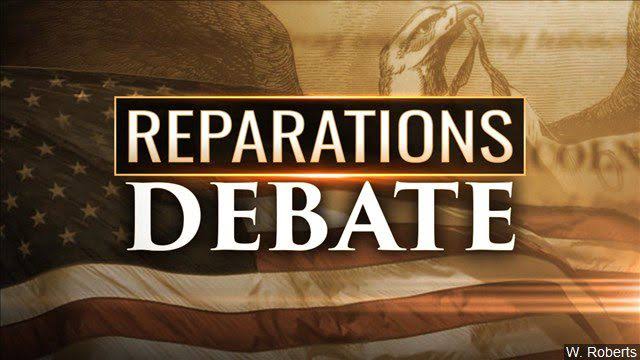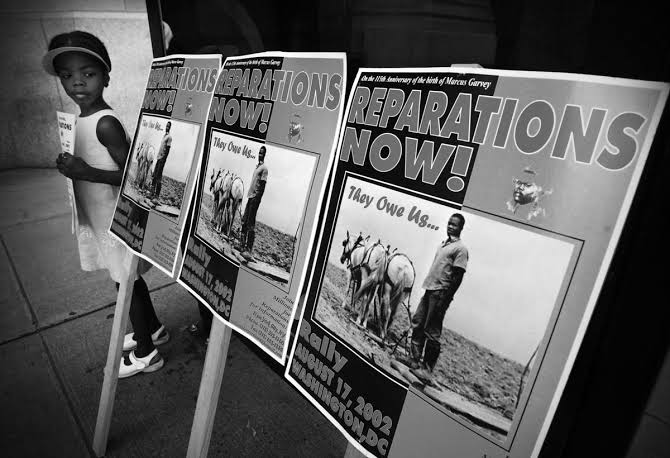The reparations debate, a complex and contentious issue, has been a recurring topic in discussions surrounding African American history and the broader African Diaspora. Rooted in centuries of historical injustices, including slavery, colonization, and systemic discrimination, the call for reparations seeks to address the lasting legacy of these injustices and their profound impact on communities worldwide. In this comprehensive article, we will delve into the multifaceted reparations debate, examining its historical context, arguments for and against, key developments, and global perspectives. To fully grasp the reparations debate, we must explore its deep historical roots:

The Transatlantic Slave Trade
The transatlantic slave trade, spanning over four centuries, remains a dark chapter in human history. Millions of Africans were forcibly transported to the Americas, Europe, and other regions, enduring unimaginable suffering, brutality, and dehumanization.
Slavery in the Americas and the Caribbean
Slavery in the Americas and the Caribbean subjected African people to harsh labor, exploitation, and cruelty. This institution laid the economic foundations for many nations but came at a tremendous human cost.
Colonialism and Exploitation
The colonization of African nations by European powers led to the exploitation of their resources and the imposition of oppressive systems. These legacies continue to shape the socio-economic and political landscape of many African countries today.
Arguments for Reparations
The call for reparations has gained momentum over the years, with compelling arguments in favor of addressing historical injustices:
Economic Inequities
Proponents assert that the economic disparities faced by African American communities and nations in the African Diaspora are direct consequences of historical injustices. Reparations are seen as a means of rectifying these disparities.
Inter-generational Impact
Reparations are considered a way to acknowledge the inter-generational trauma and harm inflicted by slavery, colonization, and systemic discrimination. Addressing these injustices is viewed as a vital step toward healing and reconciliation.
Acknowledging Historical Responsibility
Supporters argue that nations and institutions that benefited from slavery and colonialism have a moral obligation to take responsibility for their actions and provide restitution to descendants of victims.
Land and Property Rights
In some regions, the demand for reparations extends to the return of ancestral lands and property that were forcibly taken during the colonial period.

Arguments Against Reparations
The reparations debate also faces opposition, with several counterarguments that include:
Historical Complexity
Opponents contend that the reparations debate oversimplifies complex historical events. Determining who should pay and who should receive reparations is seen as a challenging and contentious task.
Lack of Direct Descendants
Some argue that the beneficiaries and victims of historical injustices are no longer alive, making it difficult to identify who should be held responsible and who should receive reparations.
Economic Feasibility
Critics raise concerns about the economic feasibility of reparations, suggesting that the costs involved could be impractical and detrimental to the current economy.
Individual Responsibility
Opponents argue that individuals should not be held responsible for historical events they had no part in, and that collective guilt is unjust.
Reparations Worldwide
The reparations debate is not confined to a single nation or region but has become a global discussion:
United States: H.R. 40
In the United States, the introduction of H.R. 40 is a significant development. This bill seeks to establish a commission to study and develop reparation proposals specifically for African Americans.
International Discussions
The United Nations and various international bodies have weighed in on the issue, recognizing the importance of addressing historical injustices on a global scale.
Grassroots Movements
Grassroots movements and advocacy groups worldwide continue to push for reparations on local, national, and international levels, bringing the debate to the forefront of public discourse.
Challenges and Complexities
The reparations debate is marked by numerous challenges and complexities:
Legal and Political Hurdles
Implementing reparations programs involves complex legal and political processes, with many governments and institutions reluctant to take action.
Defining Recipients
Determining who is eligible to receive reparations and the criteria for eligibility can be a contentious and difficult task.
Financial Considerations
The financial implications of reparations are substantial, and determining funding sources and distribution mechanisms is a subject of ongoing debate.

The reparations debate remains a multifaceted issue with historical, moral, and socio-economic dimensions. Addressing historical injustices in the African Diaspora through reparations is a topic that will continue to evolve and generate discussions in the years to come. While the debate may not have a clear resolution, it serves as a reminder of the enduring legacy of historical injustices and the importance of acknowledging and addressing them.
In the pursuit of justice and healing, it is essential to consider the multiple perspectives, historical context, and contemporary developments surrounding the reparations debate. Only through open and informed dialogue can we hope to arrive at solutions that address historical injustices and promote a more equitable future for all, both within the African Diaspora and on a global scale.

